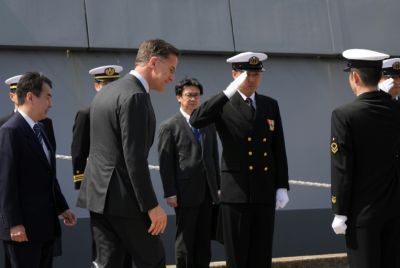New Zealand and China Decide to Boost Defence Ties

New Zealand and China will work towards strengthening defence ties, reported 3 News. This is conveyed in a joint statement issued after a high-level meeting held in Wellington between the two sides. The statement also mulls about enhanced cooperation in the South Pacific region.
At the meeting, Jonathan Coleman, defense minister of New Zealand, and Fan Changlong, vice chairman of the Central Military Commission in China, led the two sides. The joint statement also mentioned that a team of senior defence officials from New Zealand would be visiting China in the later part of 2014.
Cooperation in the South Pacific
Chinese News agency CNC added that military leader Fan also met Prime Minister John Key and held talks on enhancing bilateral defense relationship. The two sides considered maritime security as vital to all the countries in the region and discussed ways to enhance regional cooperation. They also explored opportunities for cooperating in peacekeeping and South Pacific affairs in humanitarian assistance and disaster relief.
There was consensus that defence ties constituted an important component in the mutually beneficial bilateral relationship.
The PLA leader invited the New Zealand Defense Force to participate in the Cooperation Spirit 2014 exercise involving military personnel from China, New Zealand, Australia and the United States to be held in China later this year.
New Zealand Dollar Down
Meanwhile, the New Zealand dollar touched its lowest in six weeks against the Australian dollar. The kiwi traded at AU92.25c at 8 am on Wednesday in Wellington and was down from AU92.36c recorded on Tuesday. Then it slid to AU92.06c, the lowest since June 13.
The crash comes in the wake of Australian Reserve Bank Governor Glenn Stevens refusing to talk the Aussie currency down. Consequently, the Australian dollar surged, and no negative comments came from the governor despite about the soaring currency.
According to a foreign exchange analyst, unlike in 2013, the governor is not talking the Aussie down. When he did that, it dropped 100 points. This year, he has given up jawboning the currency down. So the market has taken the cue that it is free to do what it wants and that went in favour of the Aussie.





















